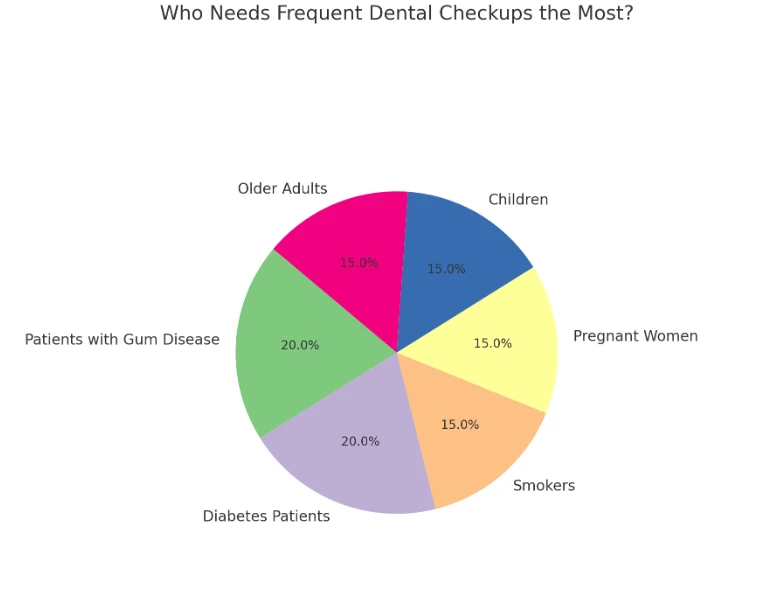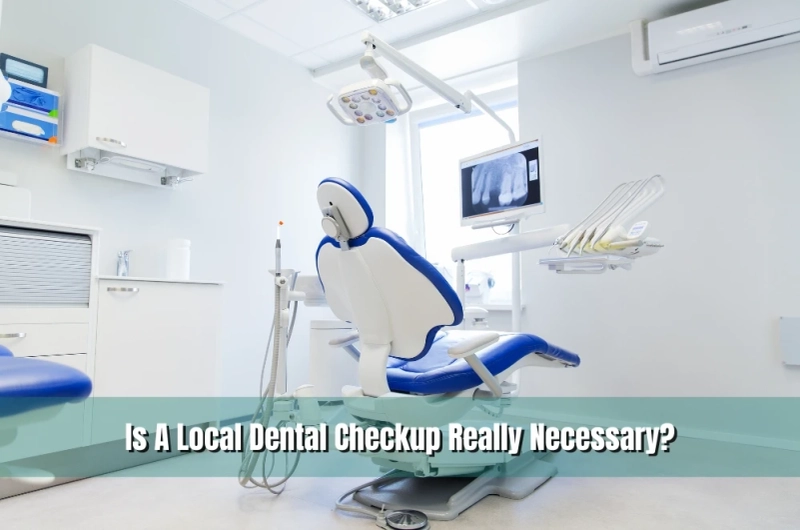Did you ever get that niggling question about your teeth but dismiss it, saying, "She'll be right, mate," and you're thinking whether preventative oral care is worth the time and money? You're asking yourself, "Is a routine dental checkup worth the trouble and the blow to my pocketbook, and what are the long-term gains of having regular dental visits?" For residents looking for good dental care, particularly those searching for a dental clinic in Sydney, regular checkups are important for good oral health and a healthy smile for years. Yes, a local dental checkup is needed to maintain optimal oral health and avoid expensive dental problems.
Can regular checkups prevent costly dental issues?
Knowing the preventive potential of regular checkups serves to value their function in keeping teeth healthy and saving funds. Checkups detect problems early on, with the opportunity for early intervention and avoiding complications. Checkups prevent tooth decay and find and cure cavities before things get out of hand. Checkups avoid gum disease, maintain healthy gums, and prevent tooth loss. Checkups provide professional cleaning and tartar and plaque removal. Checkups detect signs of oral cancer, making early diagnosis and treatment possible. Checkups save long-term costs through the prevention of costly treatments. Knowledge of these benefits facilitates proper dental care planning.
- Catch problems early and avoid complications.
- Prevent tooth decay by filling cavities before they become worse.
- Prevent gum disease and maintain healthy gums.
- Let cleaning remove plaque and tartar.
- Detect cancer signs, allowing early diagnosis.
- Save money in the long run, minimising costly treatments.
What do I do if I can't afford dental treatment?
Knowing available options aids in appreciating the need for dental treatment, even during financial difficulties. Investigate payment plans, enabling affordable monthly payments. Look for community dental clinics with cheap or free dental care. Ask about dental insurance, which offers coverage for required treatments. Search for dental school clinics where students offer reduced-cost supervised care. Consider government aid, which provides financial assistance for qualified individuals. Prioritise emergency treatments, treating immediate dental issues to avoid further complications. It's crucial to address dental emergencies promptly to prevent further complications.
- Investigate payment plans, enabling monthly instalments.
- Ask about community clinics with low-cost services.
- Ask about insurance and offering treatment coverage.
- Search for school clinics with students offering care.
- Look for assistance, offering monetary aid.
- Prioritise urgency, fixing urgent issues.
Who needs frequent dental checkups the most?
Knowing the high-risk groups makes one appreciate the value of personalised dental care and frequent checkups. For example, individuals with gum disease benefit from frequent checkups to prevent further degeneration, and individuals with diabetes benefit from frequent checkups to control oral health complications. 
When should I book a dental checkup?
Identifying the best time for dental checkups ensures the value of their function in ensuring oral well-being and avoiding complications. Schedule checkups every six months for ongoing monitoring and cleaning. Schedule checkups after pain has set in for immediate dental issues. Schedule checkups before extensive procedures for maximum oral well-being. Schedule checkups after gum bleeding to check for and treat gum disease. Book checkups after teeth sensitivity to check for potential issues. Book checkups if you have a dry mouth to check for possible complications. Knowing these timings helps in efficient scheduling.
- Every six months, for regular monitoring.
- After pain, immediate issues arise.
- Pre-procedure for the best oral condition.
- After gum bleeding, detect gum disease.
- After sensitivity, check for potential issues.
- If you have a dry mouth, check for complications.
How do I choose a good dental clinic?
Knowing the requirements for choosing a good dental clinic enables one to value the need for extensive research and analysis. Look up clinic reviews online, offering feedback on patient experiences. Get referrals from friends, offering personal and trusted recommendations. Confirm the qualifications of the clinic, ensuring they possess the required expertise. Ensure that the clinic provides the necessary services that match your dental requirements. Consider the clinic location and operating hours, and offer convenience and accessibility. Verify the clinic's hygiene standards to ensure a clean and safe environment. Knowing these factors helps in successful clinic selection.
- Verify online reviews to provide patient feedback.
- Inquire with friends for recommendations you can trust.
- Verify credentials to have the required expertise.
- Verify services meet dental requirements.
- Verify the location to have easy access.
- Verify hygiene to have a safe place.
How often should I go to a nearby dentist?
Recognising the recommended frequency of dental visits helps appreciate the importance of regular checkups for maintaining oral health. Most adults should go every six months, ensuring regular cleaning and monitoring. People with issues should go more often to address specific dental problems. Children should go every six months, ensuring proper development and preventing cavities. Elderly people should go every six months to address age-related dental issues. Implant wearers must visit frequently, taking necessary precautions and maintaining good care. These rules are helpful in effective planning.
- General adults, six months for cleansing.
- Individuals with problems frequently, depending on their issues.
- Children, six-monthly for growth.
- Old age people, six-monthly, for geriatric problems.
- Implant wearers periodically undergo upkeep.
What are the benefits of finding a dental clinic?
Knowing the advantages of accessing a local dental clinic enhances their role in offering accessible and convenient dental care. Local clinics are convenient, saving travel time and stress. They provide emergency services, offering immediate help when necessary. Local clinics establish patient trust, ensuring long-term relationships. They provide personalised care, offering treatments specific to individual needs. They save travel time, ensuring prompt appointments. They offer community support, building a sense of belonging. Understanding these benefits aids in effective clinic selection.
- Provide convenience, reducing travel time.
- Offer emergency care, providing immediate assistance.
- Build trust, fostering long-term relationships.
- Offer care and tailor treatments.
- Reduce travel, ensuring timely appointments.
- Offer support and build a community.
Conclusion
Consistent dental visits are crucial for oral health. They prevent issues and save money. Choose a local clinic for convenience and care. Do not wait for checkups; look after your dental health. Frequent checkups are key to enjoying a happy smile and avoiding expensive dental complications. Knowing the benefits of prevention, options for cheap treatment, and selecting an effective local clinic makes individuals pleased for a long time. The plan supports timely care, personalised service, and savings over time, enabling well-being. Utilising local dental experts' skills effectively allows individuals to attain and sustain a healthy and confident smile.



